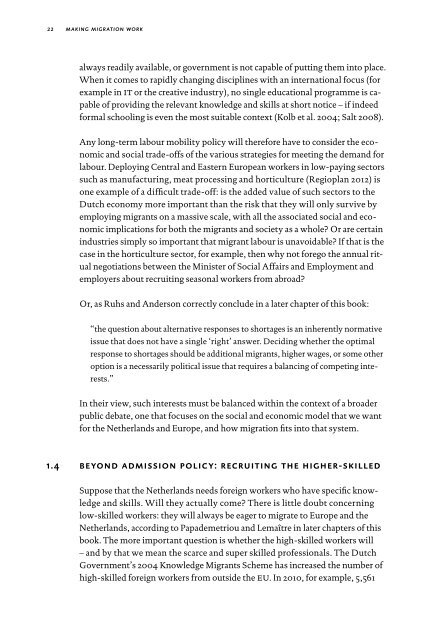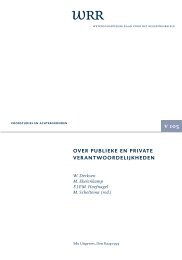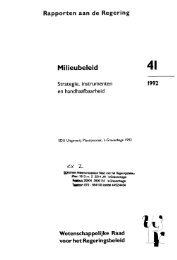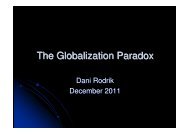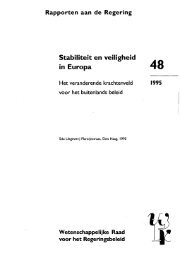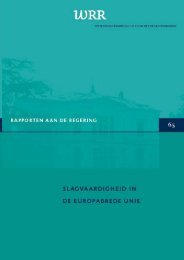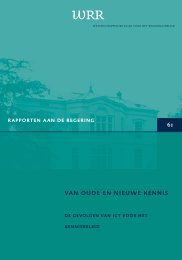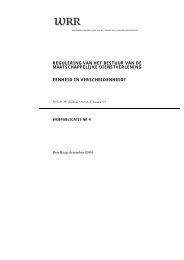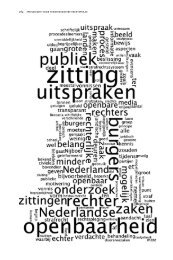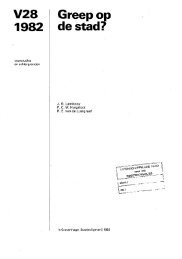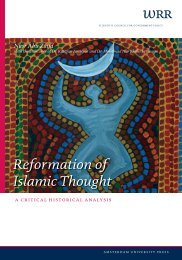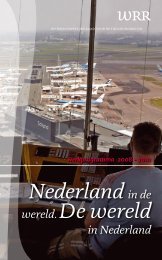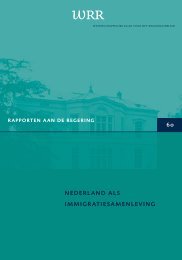Making Migration Work - Wetenschappelijke Raad voor het ...
Making Migration Work - Wetenschappelijke Raad voor het ...
Making Migration Work - Wetenschappelijke Raad voor het ...
- No tags were found...
Create successful ePaper yourself
Turn your PDF publications into a flip-book with our unique Google optimized e-Paper software.
22making migration workalways readily available, or government is not capable of putting them into place.When it comes to rapidly changing disciplines with an international focus (forexample in it or the creative industry), no single educational programme is capableof providing the relevant knowledge and skills at short notice – if indeedformal schooling is even the most suitable context (Kolb et al. 2004; Salt 2008).Any long-term labour mobility policy will therefore have to consider the economicand social trade-offs of the various strategies for meeting the demand forlabour. Deploying Central and Eastern European workers in low-paying sectorssuch as manufacturing, meat processing and horticulture (Regioplan 2012) isone example of a difficult trade-off: is the added value of such sectors to theDutch economy more important than the risk that they will only survive byemploying migrants on a massive scale, with all the associated social and economicimplications for both the migrants and society as a whole? Or are certainindustries simply so important that migrant labour is unavoidable? If that is thecase in the horticulture sector, for example, then why not forego the annual ritualnegotiations between the Minister of Social Affairs and Employment andemployers about recruiting seasonal workers from abroad?Or, as Ruhs and Anderson correctly conclude in a later chapter of this book:“the question about alternative responses to shortages is an inherently normativeissue that does not have a single ‘right’ answer. Deciding w<strong>het</strong>her the optimalresponse to shortages should be additional migrants, higher wages, or some othero ption is a necessarily political issue that requires a balancing of competing interests.”In their view, such interests must be balanced within the context of a broaderpublic debate, one that focuses on the social and economic model that we wantfor the Netherlands and Europe, and how migration fits into that system.1.4 beyond admission policy: recruiting the higher-skilledSuppose that the Netherlands needs foreign workers who have specific knowledgeand skills. Will they actually come? There is little doubt concerninglow-skilled workers: they will always be eager to migrate to Europe and theNetherlands, according to Papademetriou and Lemaître in later chapters of thisbook. The more important question is w<strong>het</strong>her the high-skilled workers will– and by that we mean the scarce and super skilled professionals. The DutchGovernment’s 2004 Knowledge Migrants Scheme has increased the number ofhigh-skilled foreign workers from outside the eu. In 2010, for example, 5,561


